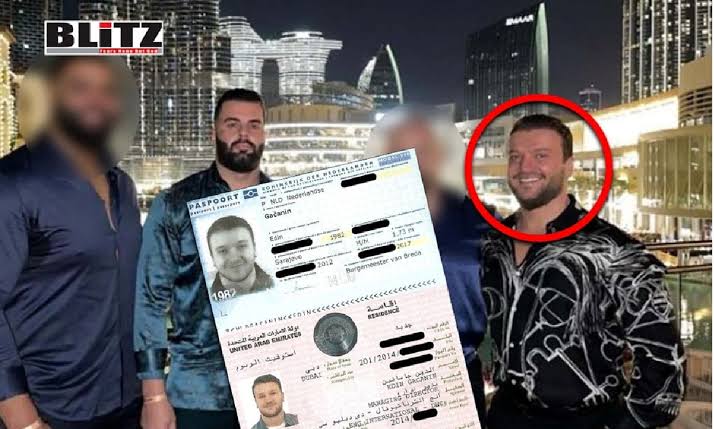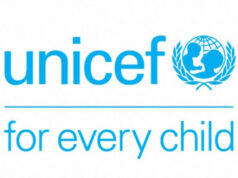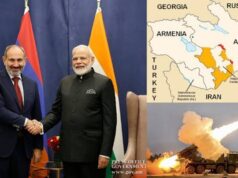Bosnian drug lord builds a criminal empire

In the heart of Dubai, a city synonymous with luxury and economic prowess, a shadowy figure has built a criminal empire that stretches across continents, exploiting the emirate’s financial secrecy and lenient regulations. Edin “Tito” Gacanin, a native of Sarajevo, Bosnia-Herzegovina, and a Dutch passport holder, has been at the center of a transnational drug trafficking operation that has flooded Europe and beyond with cocaine and amphetamines. His story is a stark reminder of how global crime syndicates are increasingly exploiting international loopholes to operate with impunity.
Born in 1982, Gacanin’s life journey began in the war-torn region of Bosnia-Herzegovina. His family fled the violence of the early 1990s, settling in the southern Dutch city of Breda. It was here that Gacanin began his descent into the criminal underworld. His ties to the Balkans remained strong, and these connections would later prove instrumental in his rise to power as a major figure in global drug trafficking.
Gacanin’s criminal activities did not remain confined to the Netherlands. He frequently travelled to Peru, a country notorious for its role in the global cocaine trade. In Trujillo, a town known for its crime families, Gacanin established a network that produced and prepared cocaine shipments destined for Europe. These operations were overseen by key lieutenants, many of whom were childhood friends from the Balkans. By the early 2010s, Gacanin had become a significant player in the international drug trade.
Gacanin’s activities soon caught the attention of law enforcement agencies around the world. By 2023, the US Treasury’s Office of Foreign Assets Control (OFAC) had sanctioned him, labeling him as the leader of the Tito and Dino Cartel. This organization was reportedly part of a larger “super cartel,” which included other notorious criminal groups such as the Kinahan organized crime group of Ireland, the Dutch Mocro Maffia, and Italy’s Camorra.
The Tito and Dino Cartel, under Gacanin’s leadership, became known for its involvement in trafficking massive quantities of cocaine and amphetamines from Latin America to Europe. The cartel also engaged in sophisticated money laundering schemes, using a web of shell companies and financial institutions to clean their illicit profits. Gacanin’s operations were vast, but he managed to evade capture, living freely in Dubai while continuing to run his criminal empire.
Dubai, one of the seven emirates that make up the United Arab Emirates (UAE), has become a notorious haven for international criminals. Its thriving trade in financial secrecy, shell companies, and opaque free zones provides the perfect environment for criminals like Gacanin to operate. Despite being a convicted drug dealer, Gacanin faced no significant obstacles in establishing companies in Dubai and the British Virgin Islands (BVI).
In 2014, Gacanin moved to Dubai, where he set up a company called Edin DMCC in the city’s free zone. According to leaked documents obtained by the International Consortium of Investigative Journalists (ICIJ), the company quickly changed its name to Edin Group DMCC, likely to mirror the name of a parent company, Edin Group Ltd., which was established in the BVI around the same time. The agent responsible for setting up the BVI company was Overseas Management Company Trust Ltd. (OMC), a firm with a reputation for creating shell companies.
The business plan for Edin Group DMCC was vague and filled with poorly written English, raising suspicions about the company’s true purpose. The plan described the company’s activities as providing “administrative consultancies and studies to public departments and companies,” but it was clear that Gacanin had other intentions. Despite his criminal background, neither Dubai nor BVI authorities raised any objections to Gacanin’s activities.
One of the most striking details in the leaked records is the involvement of high-ranking Panamanian consular officials in the creation of Gacanin’s BVI company. Two officials, including the then-consul general of Panama to the UAE, Eduardo Fonseca Ward, jointly notarized a certificate of incorporation and a certificate of incumbency for Edin Group Ltd. These documents, which bore the signatures of the officials and the consulate’s official stamp, effectively allowed OMC to create a shell company for Gacanin.
The involvement of Fonseca Ward is particularly noteworthy. His father, Ramon Fonseca, co-founded the law firm Mossack Fonseca, which was at the center of the Panama Papers scandal. This scandal exposed how the firm had helped wealthy individuals and criminals alike to hide their assets in offshore accounts. The Panamanian government has faced scrutiny for allowing its diplomatic network to assist in the creation of shell companies, a practice that has enabled criminals like Gacanin to operate with impunity.
The leaked records also show that Gacanin’s BVI company was struck off the BVI register in 2020. This development coincided with the conviction of the former premier and finance minister of the BVI, Andrew Alturo Fahie, who was found guilty of conspiring to traffic thousands of kilograms of Colombian cocaine through BVI ports to Miami for the Sinaloa cartel. The connections between Gacanin, the BVI, and high-level corruption in Panama and the BVI illustrate the global reach of his criminal enterprise.
Despite the extensive evidence of Gacanin’s criminal activities, international authorities have struggled to bring him to justice. The DMCC, which is responsible for overseeing companies in Dubai’s free zone, defended its screening process, claiming that it conducts “robust” due diligence checks on applicants. However, the fact that Gacanin was able to establish multiple companies in Dubai without any significant obstacles suggests otherwise.
In response to inquiries from the ICIJ, a DMCC spokesman confirmed that Gacanin had been associated with a company in the free zone until 2021. The spokesman claimed that the DMCC was not aware of any allegations against Gacanin at the time and emphasized that the organization has the power to terminate companies and individuals for transgressions. However, this response does little to address the broader issue of how criminals like Gacanin are able to exploit Dubai’s financial system.
The case of Edin “Tito” Gacanin highlights the challenges that international law enforcement agencies face in combating transnational organized crime. Criminals are increasingly taking advantage of global financial systems, using shell companies, offshore accounts, and lax regulations to hide their activities and evade capture. As long as jurisdictions like Dubai and the BVI continue to offer safe havens for criminals, the fight against global crime will remain an uphill battle.
The international community must take a more proactive approach to addressing these issues. This includes implementing stricter regulations on financial secrecy, increasing transparency in offshore financial centers, and holding governments accountable for their role in facilitating criminal activities. Without these measures, individuals like Gacanin will continue to operate with impunity, posing a significant threat to global security.
In conclusion, Edin Gacanin’s story is a chilling reminder of the power and reach of global criminal organizations. His ability to exploit financial systems in Dubai and the BVI, despite his criminal record, underscores the need for urgent reforms in the way the international community deals with organized crime. As the world becomes increasingly interconnected, the fight against transnational crime must evolve to keep pace with the criminals who seek to exploit it.




